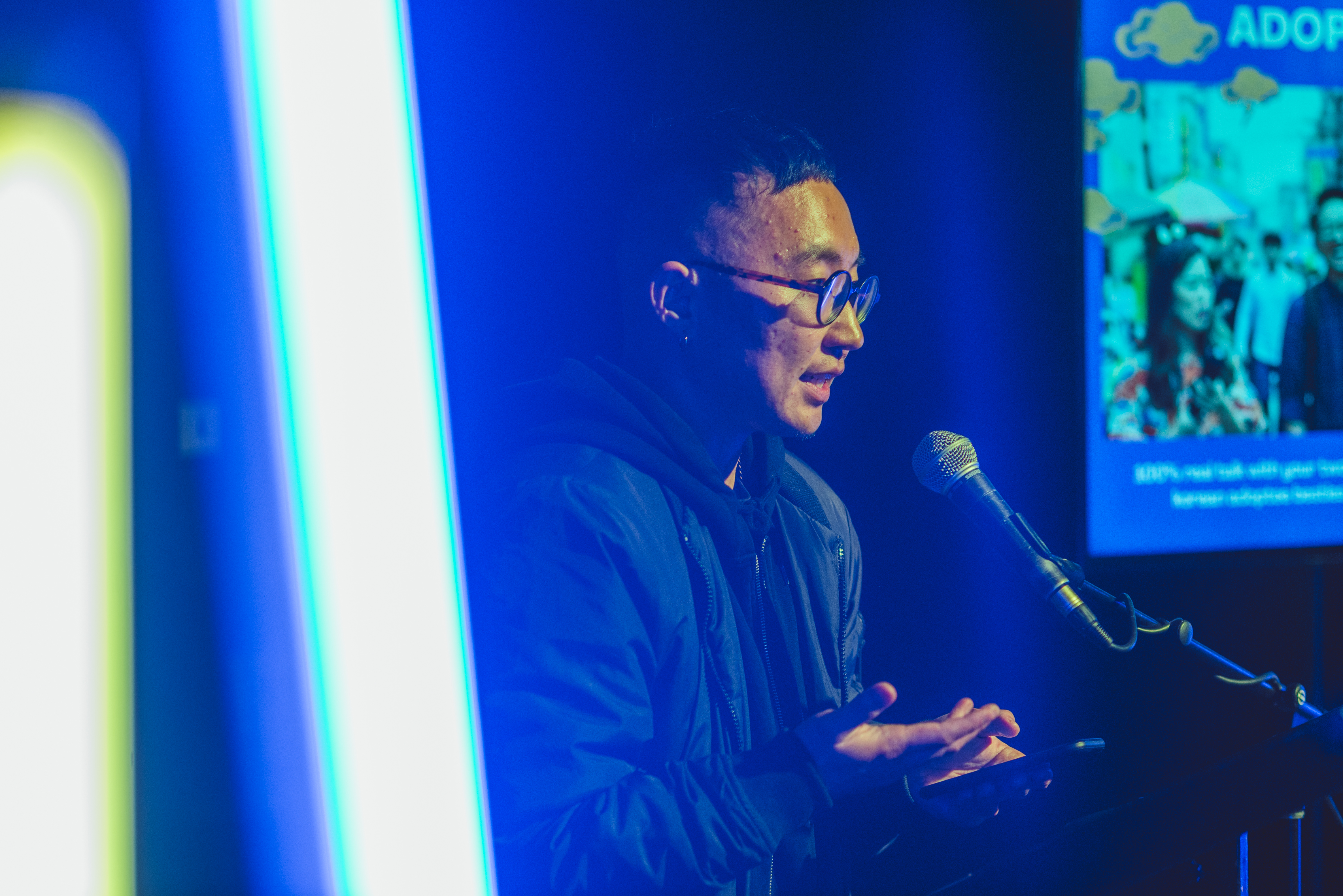Schlagwort: Annahme
-
Aus Thailand ohne Identität
Lisa Kininger shares her lifelong quest to find her Thai identity. Along the way she discovers it’s the journey that matters, not the end result.
-
-
Finding Love
Denny walked into the library and I greeted him at the circulation desk. Immediately, I felt that he was my soulmate. Later on, I found out he felt the very same thing. He’d visited a few more times, and then disappeared for a few months. In that time, I started learning how to fly by…
-
Turning Negativity into Positivity with Buddhism
Desiree shares her experience of trying Vipassana meditation at a Buddhist retreat, a way to expel her negative energies and a way to deal with adoptee anger.
-
The Crying Girl
How the Korean Government Fails I was stationed in Korea for eight years and have made more than a dozen trips to Korea since I left in 2007. During my last visit to Itaewon, I came across a small bronze statue of a girl sitting on a chair, next to an empty chair, located at…
-
Was Adoptierte bei der internationalen Adoption verlieren
I normally tiptoe around adoption and never say the A word because people just don’t respond well to “adoptee anger“. But during the month of November, I feel it is appropriate to air my feelings on what I have anger about, in intercountry adoption. I hate that our original identities are ignored and get obliterated…
-
Anxiety Triggers
I had my first panic attack almost fifteen years ago. I had just found out that my then partner was pregnant. As happy as I was for her and us that we were having a baby, something inside of me which I had suppressed for my whole life, without being aware of until then, was…
-
Kehre ins Geburtsland zurück
Vietnamese adoptee Lynelle shares about her second return journey to homeland, a decade later and how things have changed.
-
DNA-Tests: Die Risiken vs. Belohnungen
Between Black Friday and Cyber Monday, 1.5 Million DNA kits were sold online by AncestryDNA, a US-based DNA testing company. The sudden increase for DNA testing may be due to YouTube and Facebook’s large cache of emotional stories about the outcomes of DNA testing. Two YouTube video’s that stick out for me are: “DNA Journey”…
-
Would Adoptees Adopt an Orphan?
Would Adoptees Adopt or Not? This is a compilation of responses from those with lived experience.
-
Parenthood Made Me Better
One of the most memorable moments, forever ingrained in my memory, is the birth of my son. I remember the anxious months waiting for my beautiful son, developing inside his mother’s womb – feeling his small frame kicking about and waiting to be born. I remember staring at the ultrasound pictures and wondering who he…
-
What Intercountry Adoptees Need
Lynelle shares from dialogue within ICAV what intercountry adoptees need, having lived the experience.
-
Personal Message from Lynelle
Lynelle writes about her views on the UNCRC and The Hague Convention for Intercountry Adoption.
-
Such- und Wiedervereinigungsforschung bei internationalen Adoptionen
Pauline Senchyna’s research on Search & Reunion for Ireland’s aging intercountry adoptees.
-
When will Intercountry Adoptee Services be provided by Federal Government?
Lynelle critically examines who and how well the millions of money is being spent by the Australian government in intercountry adoption.
-
Aufgegeben hier adoptiert: Rückblick
ICAV review of Abandoned, Adopted Here: a multimedia documentary by Lucy Sheen about the Hong Kong intercountry adoptees sent to England.
